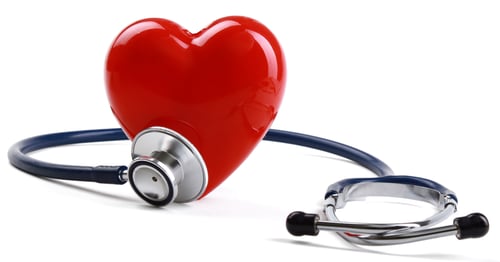Every day, your heart beats an amazing 100,00 times per day on average, pumping about 2,000 gallons of blood throughout your body. Blood is necessary for making

sure your organs and tissue receive the nutrients and oxygen they need to function and thrive. With so much depending on your heart, it makes sense to do all you can to keep it as healthy as possible. And the good news is, improving and optimizing your heart health isn’t difficult - and it’s not expensive either. Here are some recommendations.
Six Steps to a Healthier Heart Keeping your heart healthy begins with understanding what behaviors and medical conditions can influence your heart health, knowing how healthy your heart is right now and taking critical steps to support optimal cardiovascular health.
First, know your risk factors. Several conditions and behaviors can make you more prone to heart disease or heart-related medical problems, including: Diabetes Obesity High blood pressure High cholesterol Depression Older age Smoking habit Poor diet Sedentary lifestyle The Center for Disease Control says about a third of all American adults have at least one of the three primary risk factors - high blood pressure, high cholesterol or smoking. Fortunately, those three risk factors are “modifiable,” which means you can control them - and help your heart stay healthy.
Have your heart checked. Ideally, you should have an annual physical exam so your doctor can obtain important measurements that provide an overall “snapshot” of your health, including your heart health. This exam should include a blood pressure screening and a urine or blood test for blood sugar (glucose) levels to screen for diabetes. The doctor will also listen to your heart to check for any unusual sounds that could indicate an arrhythmia or other potential heart-related problem. Depending on your risk factors, your doctor might recommend other tests and screenings as well. Having your heart and blood pressure checked on a routine basis is very important for "catching" early signs or risk factors for heart disease so you can take steps to correct those problems.
Pay attention to your body’s “signals.” Tiring out with even minor physical activity like walking or climbing stairs, and unusual sensations like chest pain or fluttering in the chest can be signs of heart-related disease. Listen to what your body is telling you. See your doctor if you notice any unusual symptoms, including pain in your legs or numbness in your feet or hands.
Stock up on healthy foods. Most people think eating a heart-healthy diet involves a lot  of expensive organic or "specialty" foods. Fortunately, that's just not true. Eating a heart-healthy diet means cutting back on sugars, sodium and unhealthy fats - all of which can be found in a huge array of prepared and prepackaged foods. You can follow a heart-healthy diet without spending more money, but you will need to spend a little more time reading labels. The basics:
of expensive organic or "specialty" foods. Fortunately, that's just not true. Eating a heart-healthy diet means cutting back on sugars, sodium and unhealthy fats - all of which can be found in a huge array of prepared and prepackaged foods. You can follow a heart-healthy diet without spending more money, but you will need to spend a little more time reading labels. The basics:
- Cut down (or eliminate) sugary, high-fat snacks and drinks and replace them with fresh fruit and veggies or whole-grain, low-fat chips.
- Drink more water and less sodas and other sugary beverages.
- Look for whole-grain breads and pastas and eat them in moderation.
- Cook with olive oil instead of butter or other unhealthy fats.
- Include foods that contain heart-healthy fats like salmon or other oily fish, avocados and walnuts. These foods satisfy your body's need for fats while also helping to lower your "bad" cholesterol.
Quit smoking. This one's really a no-brainer; using tobacco products is bad for your heart - and your overall health too. Stopping smoking can reduce your risk for many chronic and acute diseases. Going cold turkey is tough, so join a support group and look into nicotine patches and other products that can reduce your cravings.
Get moving! Being more physically active doesn't mean signing up for a gym or  investing in costly exercise equipment. What it does mean is getting some moderate exercise - at least 30 minutes five days a week, according to the American Heart Association. You can even divide up your exercise into 10- or 15-minute intervals and still enjoy the heart-healthy benefits. Brisk walking gives you just the amount of moderate activity you need to meet these requirements. Regular exercise also helps relieve stress, another risk factor for heart disease.
investing in costly exercise equipment. What it does mean is getting some moderate exercise - at least 30 minutes five days a week, according to the American Heart Association. You can even divide up your exercise into 10- or 15-minute intervals and still enjoy the heart-healthy benefits. Brisk walking gives you just the amount of moderate activity you need to meet these requirements. Regular exercise also helps relieve stress, another risk factor for heart disease.
Each of these steps can make a difference in your heart health. Implement all six, and your heart will be thanking you for years to come. Make 2018 the year of your healthy heart!
*Health conditions vary by person. Speak with your doctor about their recommendations for a healthier heart.






